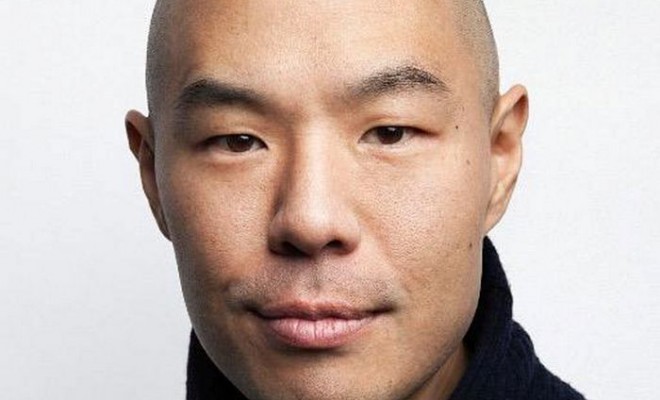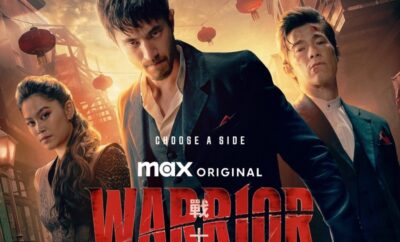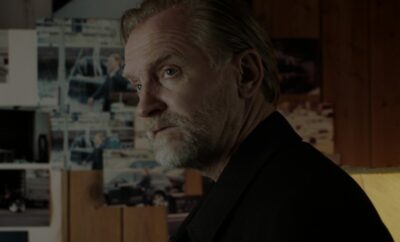
Interviews
Hoon Lee – Banshee
By: Jamie Steinberg
Q) What are the recent projects that you are working on?
A) Obviously, doing The King and I has been pretty all consuming. It’s fairly demanding physically and vocally so a lot of my day is spent in preparation for the show. I also voice a character on “Teenage Mutant Ninja Turtles.” I’m their sensei Splinter. Other than that, I’m just looking at other options more towards the end of my tenure at Lincoln Center as I seek to fill the emotional void of “Banshee.” [laughs]
Q) How was Job originally described to you?
A) He was originally described with a certain amount of vagueness. They knew they wanted a character who would be sort of outside of the standard convention of society, particularly in regards to gender awareness and gender fluidity; but it wasn’t entirely clear in what capacity and what way. So, there was really a spectrum of consideration for the beginning which ranged from him being a drag queen, a transvestite or even transgendered. All they knew was that the story was really driven by his friendship and loyalty to Lucas (Antony Starr) and his skillset within that group of criminals. And on some level, by willfulness and ferocity. As we started to understand and know about the character and understand more about how my own personal affect would sort of inform that portrayal, we started to get a clear sense of his self-identification. The realization is someone issues traditional gender biases in terms of presentation and affect and that he doesn’t see lines that we do in normal society or perhaps conventional society. He borrows and takes from whatever feels makes him powerful in that moment – however he needs to feel in that moment to either express himself as a person, to accomplish his task or in many ways assert himself in a world where he feels as an outsider.
Q) What are you going to miss about playing this character?
A) I’m really going to miss playing him because in every field you end up savoring those opportunities where you can keep exploring, digging and learning more about yourself in order to grow. That doesn’t always happen with every job so when you find that chance it is a really special thing. Unlike theatre where you may have a chance to play a character again, it’s very rare to do that in television. So, when you say goodbye to a character it is usually forever.
Q) Will we be seeing Job more or less this season as Hood & Company attempt his rescue?
A) I can’t really talk about that, but nice try! All I’ll say, in some way or another…Obviously, the kidnapping of Job was one of the big endpoints to Season Three. So, it would be highly unlike “Banshee” to not address that.
Q) What can you tease about finding out Hood’s real identity?
A) I think that the nature of Hood’s identity has been kind of alluded to somewhat in the past, particularly with David Harbour’s character in Season Three. But I think you will get more insight into him as a person for sure. Honestly, it has been (in my mind at least) sort of a bleak origin story that is being told all the way through the story. I think one of the interesting points when dealing with a character where you have so little information on them (only a name) is one of the interesting things about it is that it is an ongoing puzzle to solve. You end up retroactively learning a lot about a character based on the present, the time we see. It’s not just things that may feel habitual, but also things he is clearly trying to avoid. If you observe the character trying to make a certain kind of moral decision for example and it is difficult for them to do so, then you get some sense that maybe it is not habitual – even if it is the only way you have ever seen them behave. Or if you see someone do something quite natural, then it is clearly something they are accustomed to doing what they feel instinctively. In that sense, I think it is an interesting process to start to puzzle together; not just the facts and details of his origin, but also who he is as a person – his internal makeup. I think that is going to be seen and illustrated in the upcoming season.
Q) What have been some of your favorite storylines on “Banshee?”
A) “Banshee” is obviously a very action oriented show and there is a real heightened quality in that way. It’s a very visceral experience, but for me the very heart of the show has been the search for family. All of the action is really predicated on the idea of family. You have this main character who has been incarcerated for fifteen years and the first thing he wants to do is find the love of his life. We learn later on in the series that he has actually bought a home for them. That he has planned a life with her and that’s of course not only denied to him, but in some ways perverted because she already has a family and is raising his daughter. So, not only is he not allowed to have it, it is also in front of him in this sort of Fun House mirror way. Proctor’s (Ulrich Thomsen) great conflict is with his family being cast out of the Amish community and he takes in his niece who has similarly been cast out of her family. Rabbit (Ben Cross) is looking for his daughter, Annie/Carrie (Ivana Milicevic), who is protecting her children from him. Then, you have people like Job and Sugar who create a family of their own with this stranger who comes into town. These are people outside of society and that don’t seem to have a lot of connections. And everyone is struggling to find that in some way. That, for me, has always given the show that sort of emotional twist for working on it. It is really the motor in the ocean for ideas that lead to giant fiery explosions sometimes. It’s the thing that makes the stakes feel real and feel important.
Q) What have been some of your favorite lines Job has had to say?
A) [laughs] Well, I have to admit I’ve never had so much practice saying the word “motherfucker” in my life. I feel a little bit like I have past the amateur level of that. But some of the stuff in particular from Season One was just really, really fun to say mostly because I was saying it with other people. When there is banter involved that is always my favorite. When Job talks to Sugar (Frankie Faison) and Sugar was working on this antiquated accounting system…Sugar talks about the dangers of hacking and Job says, “Right, because I’m sure there are a million hackers in China just dying to get their hands on your financials.” [laughs] It’s clever writing. Then, cursing at the girls in Atlantic City on the Boardwalk. Those sorts of things tickle me. That is going to be some of the stuff that you miss.
Q) Are you satisfied with the ending for Job?
A) I am only because in some ways no matter how attached I grew to this character and no matter how much I identify him or feel protective of him – whatever that may be – ultimately, this is the creation of other people. It’s primarily driven by John Tropper and these are his creations. We help bring them to life and certainly we give our contributions. I have a lot of respect for the creative process of generating this world and people. Any world and any group of characters is a tall order. So, in some ways I am satisfied because I know the creative team is satisfied. They have found a story in it that they want to tell and they have tried to tell it to the best of their ability. That is really all I actually require. Differences in opinion exist all through the process, but ultimately this isn’t someone born out of my imagination. The final say about what happens to this person is only dictated by one or two people. So, my level of satisfaction actually has very little to do with it in that sense.
Q) What would you like to say to everyone who is a fan and supporter of you and your work?
A) I would say the first thing is please don’t stop! [laughs] The more success one encounters sometimes the harder it is to risk failure, but this is necessary in order to move forward. That generally doesn’t feel very good. So, understanding that you have people behind you that are rooting for you is arguably the best way to feel as though you are receiving assistance. I cannot express to you adequately how much the support of fans has helped make “Banshee” possible because the show is hard to make. It’s hard to make on multiple levels. I wish people could be flies on the wall for the enumerable conversations we have had (private and in a larger form) where people simply articulated that we have to make sure that our fans are just going to be blown away by. There was a real sense of responsibility to the people that invest their emotions and their time to follow the show, to care for these characters and to offer their support for our work, as they have overwhelmingly done since the beginning. It allowed us to make the show, I think, in a very real way. It forced us to care even when it was hard to care because we were tired or upset or whatever it might by. It gave everybody a focus to try to make the show as good as possible at every turn. So, I would say thank you more than anything else. Thank you and don’t stop!





You must be logged in to post a comment Login